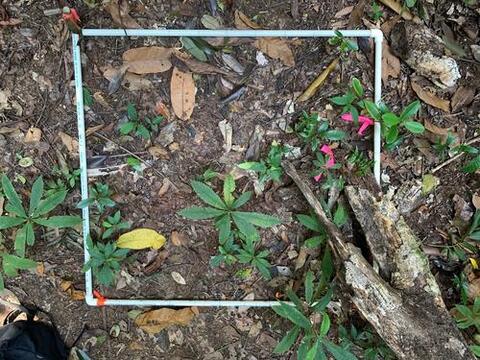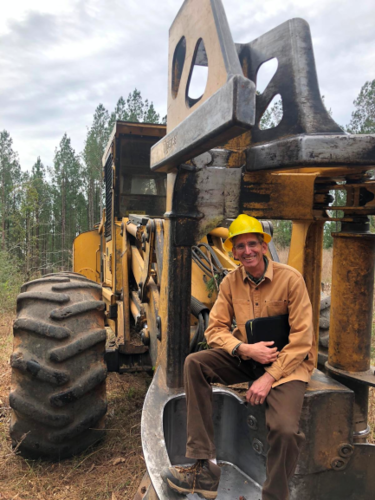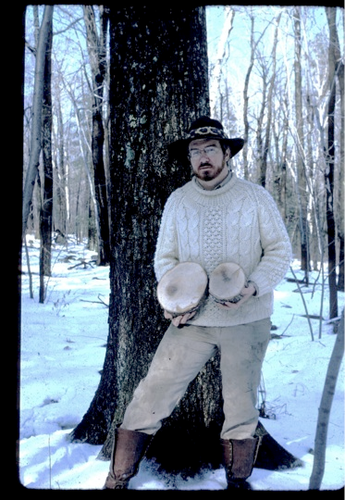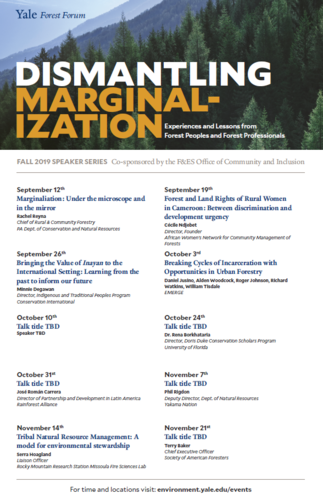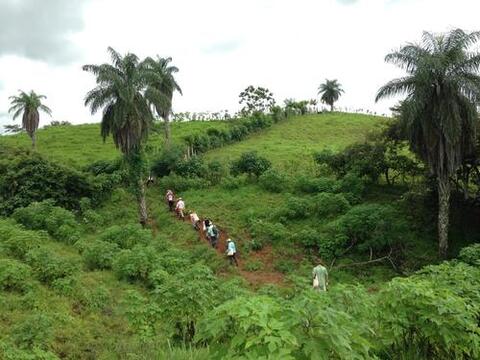
By: Sara Santiago
Transforming Landscapes
Tropical forest landscapes are undergoing degradation worldwide, which affects local livelihoods, cultures, and environments. On a global scale, this cumulatively affects the loss of biodiversity, habitat, and carbon storage. Practitioners, land managers, and land stewards are dedicated to restoring and conserving the landscapes where they work, live, and belong. However, many are looking to enhance the skills and knowledge needed to do so.
The Environmental Leadership & Training Initiative (link is external) (ELTI) trains and supports people from all sectors and backgrounds to restore and conserve tropical forest landscapes using strategies that support biodiversity and livelihoods. Based at The Forest School at the Yale School of the Environment, ELTI has been working since 2006 to address degradation of tropical landscapes through high-quality and enduring interventions.
In 2019, ELTI created Yale University’s first yearlong, nondegree program titled Tropical Forest Landscapes: Conservation, Restoration, & Sustainable Use. The Tropical Forest Landscapes (link is external) (TFL) online certificate program is in the midst of its fifth cohort, a testament to how the program continues to meet the needs of tropical landscape restoration and conservation practitioners. Through this program, ELTI is opening up pathways of change that are important to The Forest School by reaching mid-career professionals positioned to create solutions that are appropriate to their own cultures and landscapes. In these first five years of the program, ELTI has trained over 300 practitioners from 66 countries and 207 organizations, who are influencing land management on a daily basis.
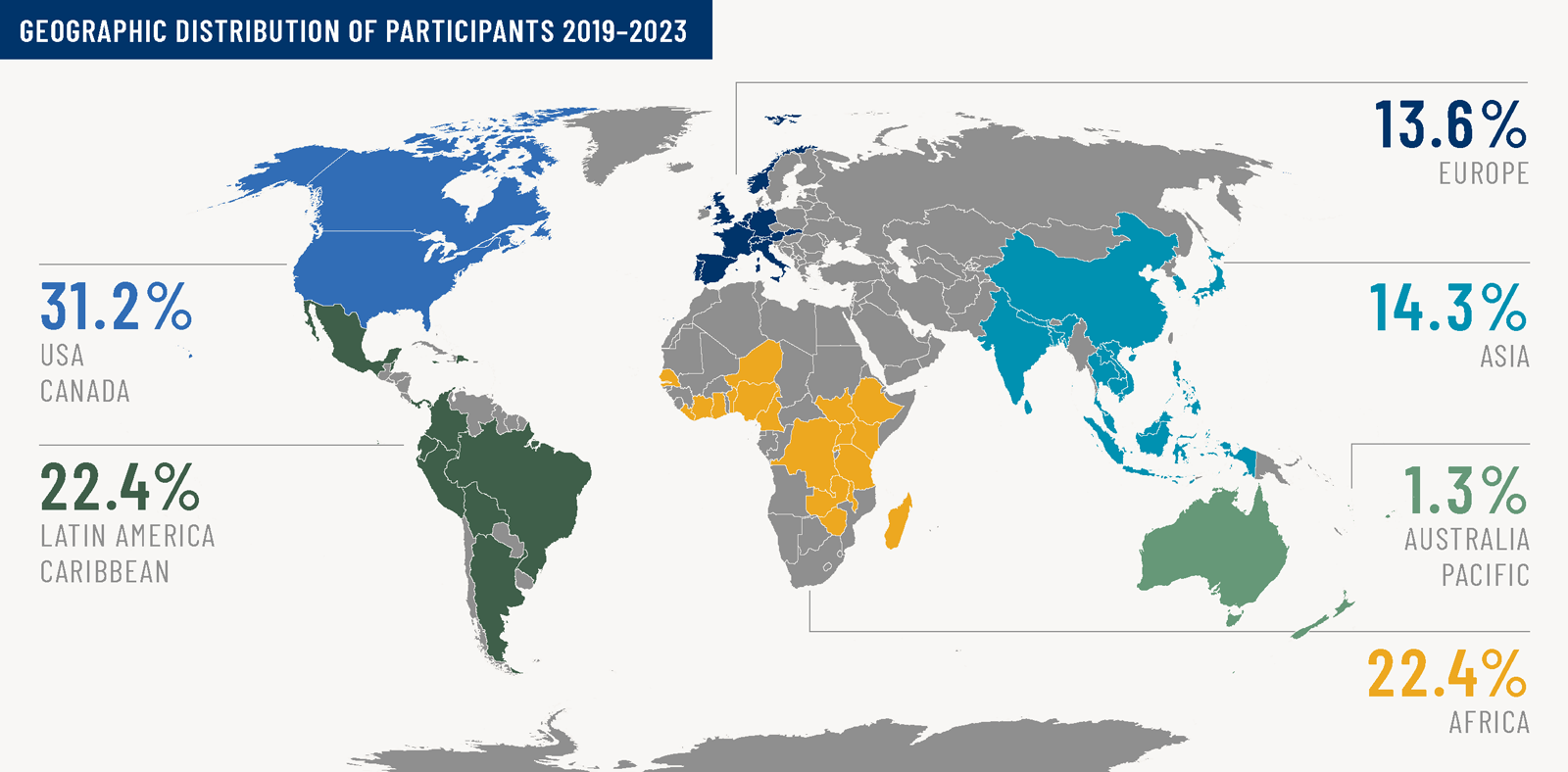
TFL participants join the online program from around the world.
The Tropical Forest Landscapes Program’s Creation
“There was an alignment of multiple things coming together,” explains Gillian Bloomfield, ELTI’s associate director of online programs. While ELTI started offering field courses for practitioners in 2006, and online courses in 2013, these participants always asked for more experiences and knowledge in topics like stakeholder engagement, technical solutions, and fundraising. This led ELTI to begin brainstorming a way to have participants enroll in multiple courses that would make up a larger cohesive program.
Meanwhile in 2017, Yale’s Poorvu Center for Teaching and Learning (link is external) advertised a university-wide call for proposals to create online certificate programs. ELTI developed a proposal based on their experience conducting online and field courses, feedback from ELTI’s participants, advice from YSE faculty, and guidance from YSE’s Office of the Dean. Through a competitive application and interview process, the Poorvu Center selected ELTI’s proposal, providing seed funding to develop the program and supplement the first year of tuition. This was also the start of a collaboration with the Center for Business and Environment at Yale (CBEY), which launched a similar non-degree program on clean energy finance later in 2019. Together, ELTI and CBEY worked with various departments and units at Yale to innovate the many administrative pathways needed to operate the programs, which are serving as a model for developing other non-degree programs at YSE.
From late 2017 to the program launch in May 2019, ELTI and advising faculty members designed a comprehensive curriculum that intricately weaves together the concepts and perspectives of many YSE faculty members, ELTI staff and affiliates, YSE alumni, and a suite of international guest contributors with diverse knowledge and lived experiences.
While the program integrates expertise from Yale, ELTI Principal Investigator and Director Eva Garen explains that the information shared in the course is “developed from the bottom up.” Garen explains “this is not about imparting Yale’s wisdom to the world, but about pulling knowledge and insights from many practices and people to develop solutions.” There are over 100 speakers in the program who add richness of thought, experience, and guidance to TFL participants. Garen says this provides a full body of work on any given subject and demonstrates that some experts are in direct contradiction to one another as knowledge moves and changes. Each instructor, speaker, and participant bring their own perspectives, so “we question our own assumptions, biases, and the influences of our own circumstances,” explains Bloomfield.
The program itself it set up as four, 8-week online modules focused on the fundamentals of ecological and social concepts, the human dimensions of engagement, land use planning strategies and implementation, and financial concepts and tools. To bring learnings to practice, ELTI offers an optional one-week in-person field course to observe conservation and restoration in practice. Through the duration of the yearlong program, participants also develop and complete a capstone project. This ensures all graduates apply program concepts to a concreate initiative—whether it is an individual project, one they are seeking partners for, or is hypothetical—and to practice using project planning tools.
Because of the site specific and multidisciplinary nature of tropical land management, ELTI does not strive to be an expert in every topic, in every location. Garen explains that ELTI helps participants to think through their specific landscape’s context and to adopt new considerations for stewarding it. When considering their socioecological realities, Garen asks of participants: “Where do they want to see their landscape in 30 years? What do they want to achieve? What is stopping them from making that happen?”
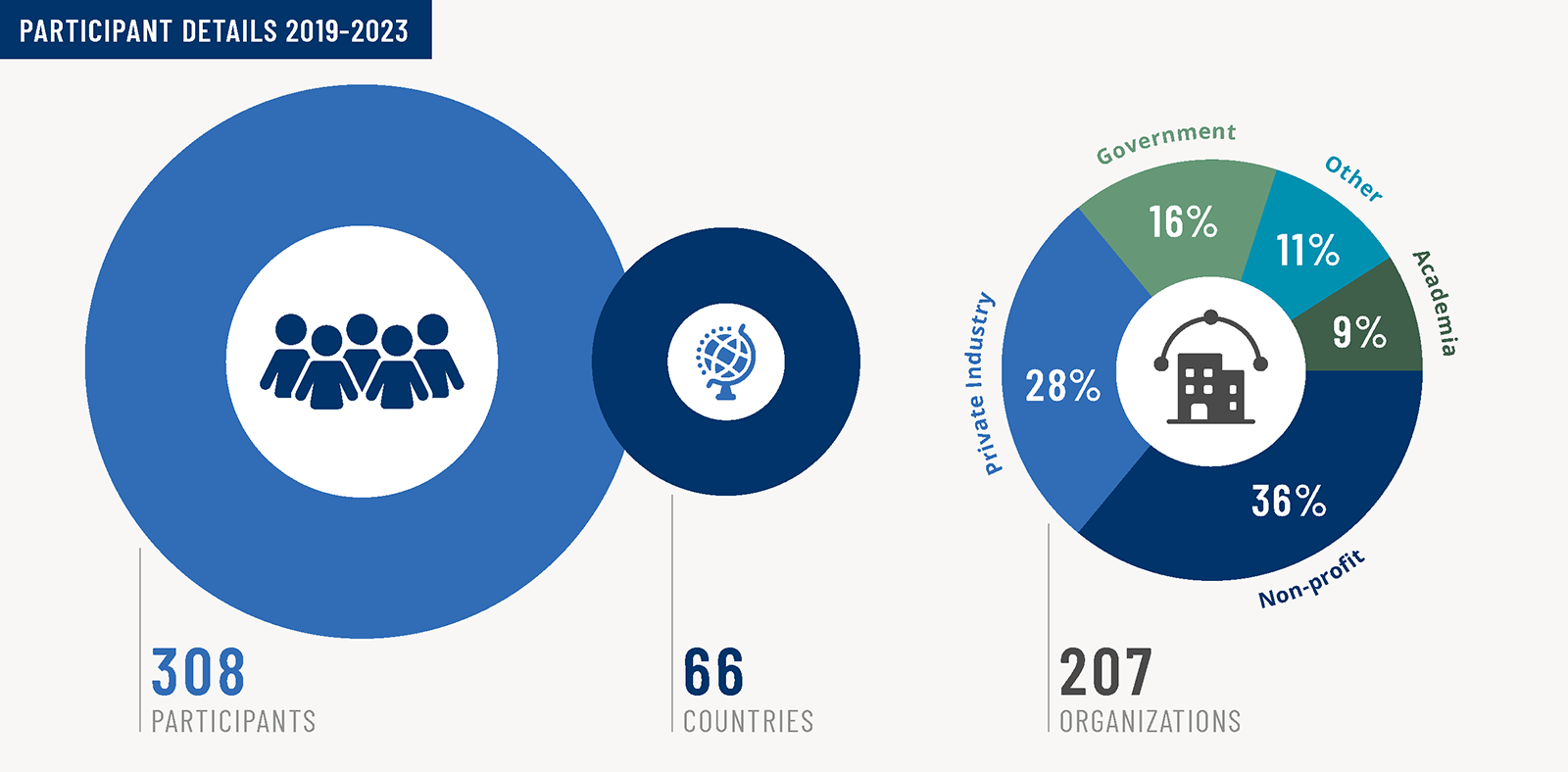
Participants come from over 66 countries and 207 non-profit, private, government, and academic organizations, and they leave TFL with the support and capacity needed to make land management decisions.
Impacts of the Program and Participants
Graduates of the program have been able to plan landscape level initiatives, implement new practices, develop monitoring mechanisms, create funding proposals (and receive project funding!), develop new strategies for community and stakeholder inclusion, and think more holistically and critically about conservation and social justice issues. Many graduates have also added that the knowledge, skills, networks, and credentials they gained through their participation helped them use the program as a springboard for their career.
Stefanía Sibille Grández ’23 TFL, ’25 MEM was working on environmental impact assessments on mining in her home country of Peru when she was sought a program to train her in thinking about sustainability in a holistic way. She was accepted into the Tropical Forest Landscapes program, with support from the Three Cairns Scholarship, and fully immersed herself in each module and the capstone project. Upon realizing a friend of hers was also in the program, Sibille Grández and her colleague joined efforts to establish a conservation project to confront deforestation in her home of San Martín, Peru—create agroforestry plots around a forested mountain to protect it from deforestation and to conserve an endemic monkey’s habitat. After the capstone project was complete, the agroforestry farmers formally created an association for themselves and are applying for more support for conservation.
Sibille Grández cherishes the community and connections she has built through the program. “I have 50 messages I need to read!” she proclaims about her cohort’s group chat. A year since completing the program, TFL alumni continue to celebrate their promotions and new jobs they attribute to their TFL training, share resources, and ask for one another’s feedback.
Because of her positive learning experience through TFL, Sibille Grández applied for a master’s degree at the Yale School of the Environment where she is now an inaugural Three Cairns Scholar at YSE (link is external). Sibille Grández continues to explore ELTI’s offerings, the School’s strong community, and endless talks, lectures, and opportunities related to restoration and conservation.
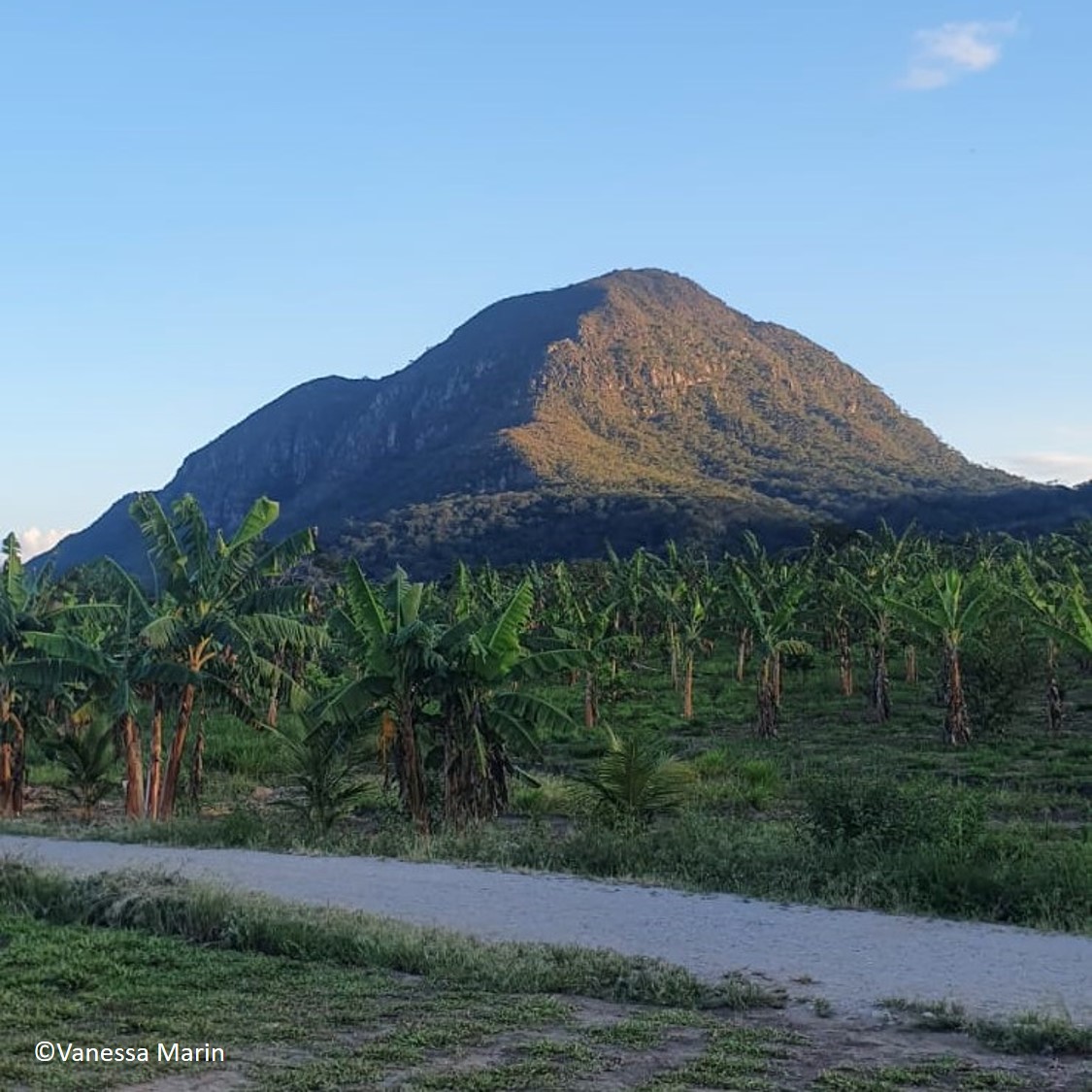
Sibille Grández’s project site in San Martín, Peru creates agroforestry plots to confront deforestation of the mountains. Photo: Vanessa Marin.
The People Behind the Program
The number of the School’s faculty, students, staff, and alumni dedicated to the TFL certificate program’s success often goes unseen from the outside. From the very beginning, Bloomfield, Garen, and former ELTI program manager Karin Bucht have been leaders in overseeing the creation and management of the program and designing its curriculum. Newly hired Emi Nicholson, online training associate, and Abby York, online program administrator, coordinate the delivery of the program and manage recruitment. Each year, postgraduate associates, like Fred Addai ‘23 MF and Cecilia Rogers ‘22 MFS, and ELTI student fellows contribute to programming.
A constellation of faculty members serves as lead and contributing instructors (link is external). Mark Ashton, Morris K. Jesup Professor of Silviculture and Forest Ecology, plays a key role in setting the restoration ecology foundation for the program. Os Schmitz, Oastler Professor of Population and Community Ecology, is a contributing instructor on ecosystem functions and services. Amy Vedder, lecturer and practitioner of international wildlife conservation, serves as the lead instructor of the yearlong capstone project. They say that this program gives them something that they do not receive from their other work: direct connection with landscapes and the people on the ground who are implementing.
For Florencia Montagnini, lead instructor for the “Strategies” course and senior research scientist at YSE, says teaching these cohorts is special because she is “reaching such large, diverse groups of students avid to absorb and to share knowledge,” in turn learning from them, and witnessing “how many participants actually turn their knowledge in the course into practical applications for their projects.”
Amity Doolittle, contributing instructor and senior lecturer at YSE, says “the magic of ELTI is dependent on the team, which has extraordinary knowledge, resources, and access to the highest thinkers” on restoration and conservation. Doolittle believes TFL is entirely aligned with the institutional goals on diversity, equity, and inclusion, as the group trains thinkers and practitioners all over the world. In turn, Doolittle benefits from some of her most interesting discussions with students, who are making real, interdisciplinary impacts on the ground. She believes this work makes her a better teacher and thinker and looks forward to more ways to apply that in her classrooms at YSE.
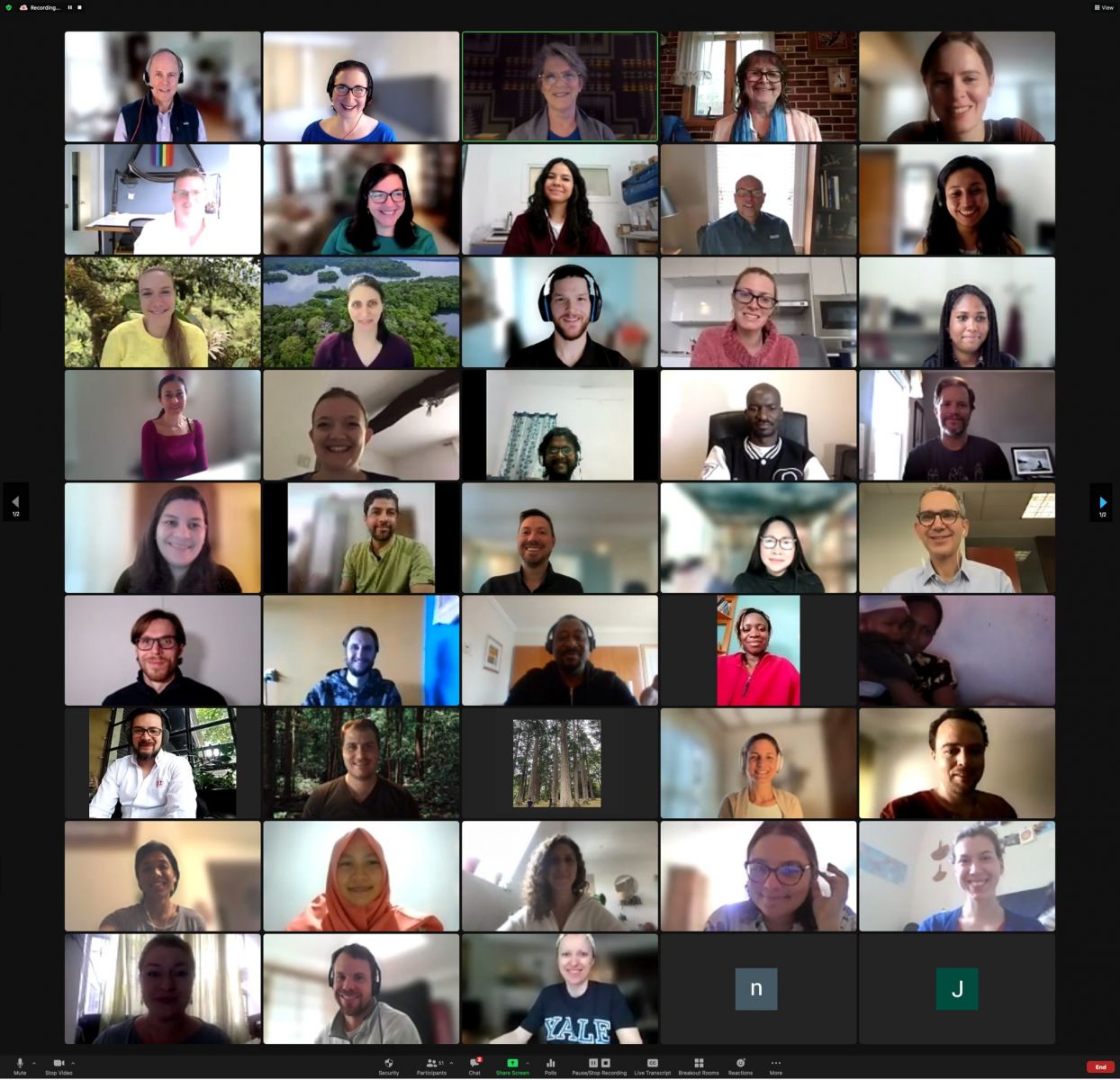
TFL instructors and participants celebrate accomplishments and share memories at the closing live session for the 2021-22 program.
Celebrating 5 Cohorts and Counting
As landscapes and issues evolve, so does the program to address the most pressing issues and topics. “Engaging with practitioners serves as a reality check,” says Montagnini. “One must think if what we know and want to share with them is really useful? Is there anything we are missing, aspects to improve or change the focus on certain topics?” ELTI continues to update the program with new approaches and pedagogy, bring in new subjects and guest speakers, and integrate more alumni networking and peer-to-peer engagement for co-creating knowledge.
“Every day, I am so inspired by our participants, past and present,” Bloomfield comments. “They dedicate an incredible amount of time and effort to engage fully in the program. And they have so much to share with their colleagues about their work to address environmental and human challenges around the world. As the body of program alumni grows, we look forward to celebrating their accomplishments and finding new ways to connect them with each other and the broader YSE community.”
To learn more about TFL and to apply to the sixth cohort, watch the following videos and start your application (link is external) due April 5, 2024.
Learn More About the Program
2023 Participant Experience - Yale Tropical Forest Landscapes online certificate program (link is external) from Yale Environment Online Ed. (link is external) on Vimeo (link is external).
Watch the admissions information session (link is external) from December 12.
Contact via email: tropicalcertificate@yale.edu (link sends e-mail)
Follow on social media:
